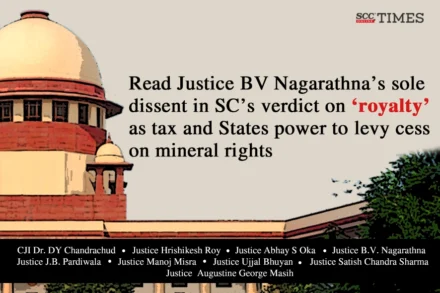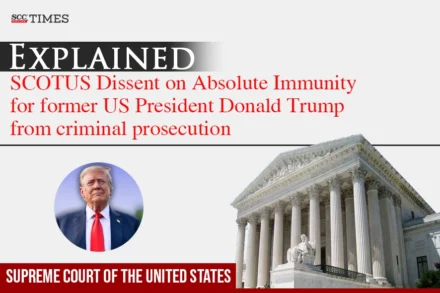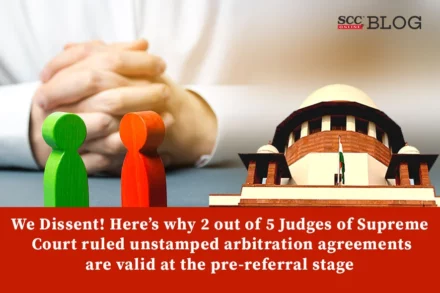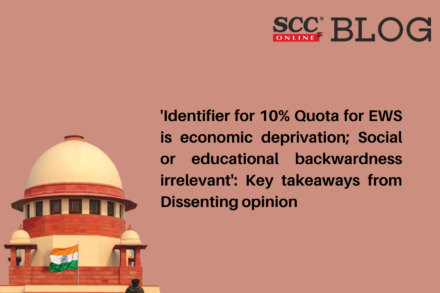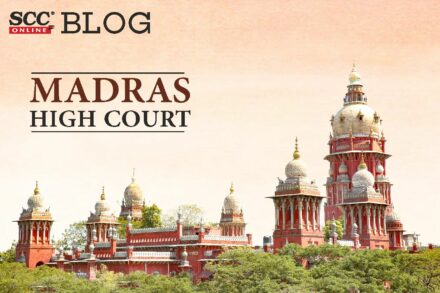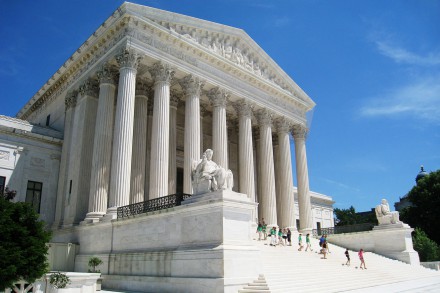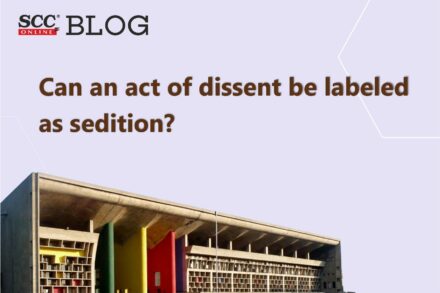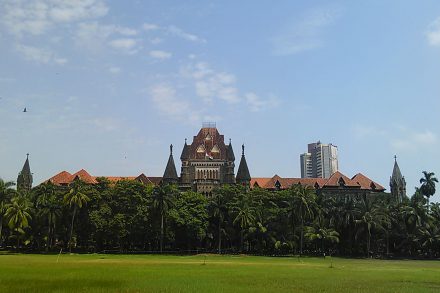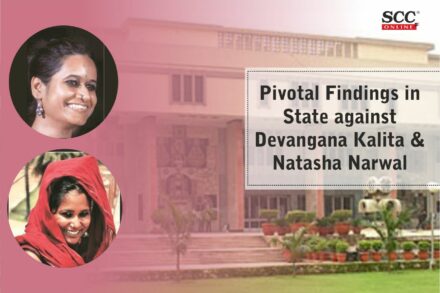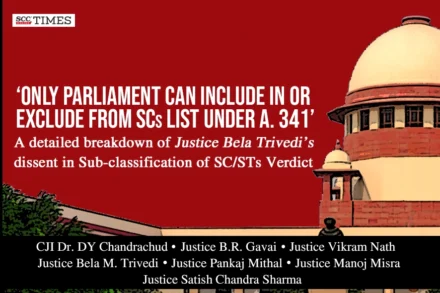
‘Only Parliament can include in or exclude from SCs list under A. 341’: A detailed breakdown of Justice Bela Trivedi’s dissent in Sub-classification of SC/STs Verdict
“State has neither executive nor legislative power to sub-classify or sub-divide or re-group the castes, races or tribes specified as the “Scheduled Castes” in the Presidential List notified under Article 341. Under the guise of providing reservation or under the pretext of taking affirmative action for the weaker of the weakest sections of the society, the State cannot vary, nor tinker the Presidential List.”



